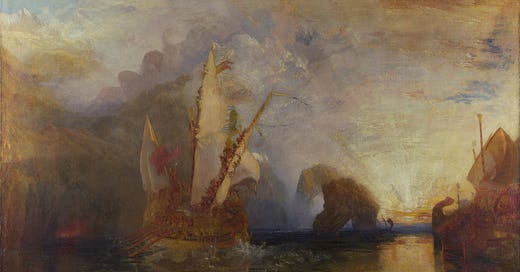
Ulysses
by Alfred, Lord Tennyson
It little profits that an idle king, By this still hearth, among these barren crags, Match’d with an aged wife, I mete and dole Unequal laws unto a savage race, That hoard, and sleep, and feed, and know not me. I cannot rest from travel: I will drink Life to the lees: All times I have enjoy’d Greatly, have suffer’d greatly, both with those That loved me, and alone, on shore, and when Thro’ scudding drifts the rainy Hyades Vext the dim sea: I am become a name; For always roaming with a hungry heart Much have I seen and known; cities of men And manners, climates, councils, governments, Myself not least, but honour’d of them all; And drunk delight of battle with my peers, Far on the ringing plains of windy Troy. I am a part of all that I have met; Yet all experience is an arch wherethro’ Gleams that untravell’d world whose margin fades For ever and forever when I move. …
Keep reading with a 7-day free trial
Subscribe to Poems Ancient and Modern to keep reading this post and get 7 days of free access to the full post archives.



